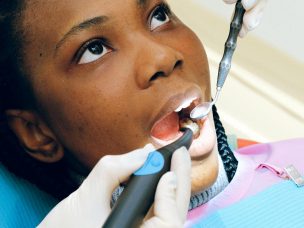JiaDe (Jeff) Yu, MD, specializes in allergic contact dermatitis and occupational dermatitis in both adults and children. He is a board-certified dermatologist with further training in pediatric dermatology. Eczema, complicated inherited genetic skin disorders (genodermatoses), and the complete range of pediatric dermatology. In this interview, Dr. JiaDe (Jeff) Yu sheds more light on eczema, also known as atopic dermatitis, which is an inflammatory skin condition. He explains its symptoms, treatments, and doable preventative measures.
What are the symptoms of eczema?
Dr. JiaDe (Jeff) Yu
Most common symptoms are itching, redness of the skin, flaking, cracking, and sometimes thickening if scratching after a prolonged period of time
Are there any treatments someone can use on their skin to lessen the likelihood of another flare-up?
Dr. JiaDe (Jeff) Yu
Consistently moisturizing the skin with thick emollients such as ointments (Vaseline, Aquaphor, CeraVe ointment, Vanicream ointment, etc) or creams (Cetaphil, CeraVe cream, Vanicream, Aveeno Eczema Therapy Cream) consistently, at least twice a day, can be helpful to prevent flare ups. Avoiding triggers such as wool sweaters, fragrances, and other known triggers can be helpful.
Are there any foods that one should stay away from to prevent flare-ups?
Dr. JiaDe (Jeff) Yu
To date, there is no evidence that one or multiple foods contributes to eczema in all cases. Some people might be allergic to specific foods, though food avoidance should be done after confirmation testing with an allergist.
What’s the greatest approach to make someone’s skin more moisturized? Should a person need a prescription for anything or may they utilize an over-the-counter prescription?
Dr. JiaDe (Jeff) Yu
See answer to #2. The best time to moisturize is immediately after showering or bathing. Moisturizing from head to toe, even in areas that you don’t normally develop eczema can be helpful. Most moisturizers do not require a prescription.
Is it necessary to purchase certain soaps, lotions, or laundry detergent? Do sensitive skin or fragrance-free products help?
Dr. JiaDe (Jeff) Yu
Some soaps, lotions, or laundry detergents might contain potential allergens, irritants, etc. In the eczema community, we usually recommend fragrance-free products. There are some products that have been verified by experts in the field to most likely be safe (for most but not all) people with eczema. These products will carry the NEA Seal of Acceptance.
Are there some materials that one should stay away from wearing? What about clothes that a person should wear frequently?
Dr. JiaDe (Jeff) Yu
Wool is the most common trigger for eczema and itching. 100% organic cotton clothing and silk tend to be safer.
Do you know of any doable preventative measures for eczema?
Dr. JiaDe (Jeff) Yu
Moisturizing, avoiding triggers.
How many people in America suffer from eczema?
Dr. JiaDe (Jeff) Yu
The current estimates are somewhere between 15-20% of children and around 10% of adults.
Is eczema dangerous if untreated?
Yes, if untreated, eczema can lead to skin infections, loss of sleep, loss of school days, loss of productivity, psychosocial impacts, including depression among patients and caregivers, etc.
Will eczema ever go away?
Dr. JiaDe (Jeff) Yu
In some children, as they grow up, eczema can resolve, sometimes fully. However, in some, eczema persists throughout life though could take on different forms. For example, hand eczema is more common in adults but face eczema is more common in infants. Adults can also develop new-onset eczema. This is being increasingly recognized.
For more information and amazing resources on Eczema please head to NationalEczema.org










